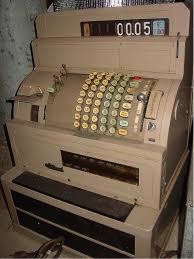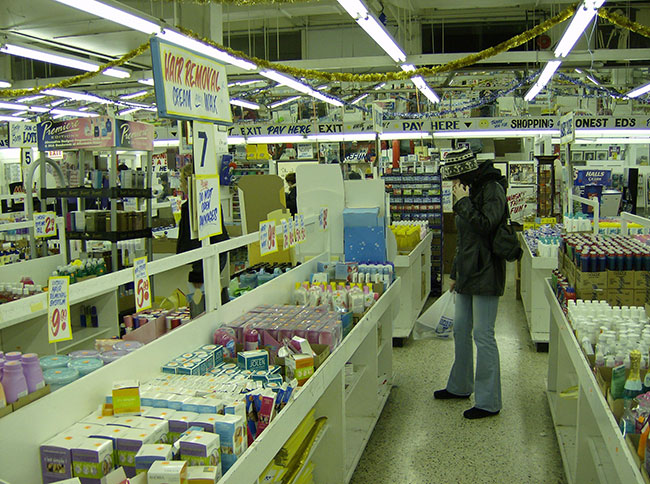Honest Ed’s has always been an iconic name and place for me. My parents, both born in Toronto in 1913 and 1915, grew up just a few streets from each other in the same area as Ed Mirvish. Apparently, my mother’s older brother was part of the same street crowd. Stories of their adventures were woven in the conversation and laughter that was routine at the weekly Shabbat gatherings at my Bubbie’s house on Markham Street. My mother’s seven siblings, spouses, and children were always there.
I found myself applying for a job at Honest Ed’s over the 1962 Christmas holiday during my first year at the University of Toronto. We all knew that Honest Ed’s was crowded during Christmas and I was about to discover that up close.
I thought that I’d be hired as a stock boy or sweeper, but no, I was put to work right away as a cashier. I can’t remember whether the registers were electric or manual, but for sure they were the very old style with row upon row of cents, dimes, and dollars. The register’s keys had to be accurately pushed or mistakes big and small would be made.

I’m pretty sure it looked like this. It took some practice to become reasonably proficient using this machine and dealing with the items, the customers and money. No credit cards or debit cards then –cash only. I developed a growing respect for cashiers and workers that dealt with the public.
I learned a big lesson on that job. I found myself, at first, identifying with the customer as they waited in line. I wanted to speed them along—imagining they were becoming impatient when having to wait. I worked faster, and faster trying to ease their agitation but the faster I worked, the longer the line became! Lesson learned, do your best work; don’t take responsibility for the customer’s decision to come and shop at Honest Ed’s at Christmas!
The bigger lesson I learned and experienced was a much more ‘human’ lesson—that empathy and generosity matter in the end. That building and store was a vortex, literally and symbolically. Honest Ed’s customers and staff were a microcosmic representation of Toronto’s multicultural community. Without the label, Honest Ed’s seemed to me to be an equal opportunity employer. Some men, more women, new Canadians—as new immigrants were called at the time—were the majority of the employees. All my supervisors and fellow workers were women. I marvelled at the great confluence of humanity—the old, the young student, the immigrant (as we all are), everyone looking for a bargain, everyone looking to make the best for themselves and their loved ones at that time of year.

The company treated their employees with dignity and respect, at least from my perspective. While Christmas was a very busy time for the staff, it seemed that people were happy, knew their hours in advance, and knew they were being respected. It felt like I was part of a team. I really felt it, even though I was only there for around 10 days. And I even got a Christmas bonus of $5.00. Not bad for 1962.
Being a regular volunteer for the Koffler Centre of the Arts brings me in contact with many artists, events and people that I would not ordinarily encounter. The staff at the Koffler has that same warm inclusive team-like feel that I felt at Honest Ed’s. Everyone working together for a common goal.
It was fitting that the Koffler Centre of the Arts would plan to be a part of the last days of Honest Ed’s. Without any advance notice, for me to be stationed in the very spot that I worked for those 10 days fifty-five years ago, was highly emotional. It’s hard to see Toronto institutions close. Sometimes it feels like a part of one’s own history is being wiped clean. Being there, in the very spot provided a sort of bookend to the legacy of Honest Ed’s for me. I’m looking forward to Honest Ed’s and the Mirvish Family’s next iconic cultural iteration.